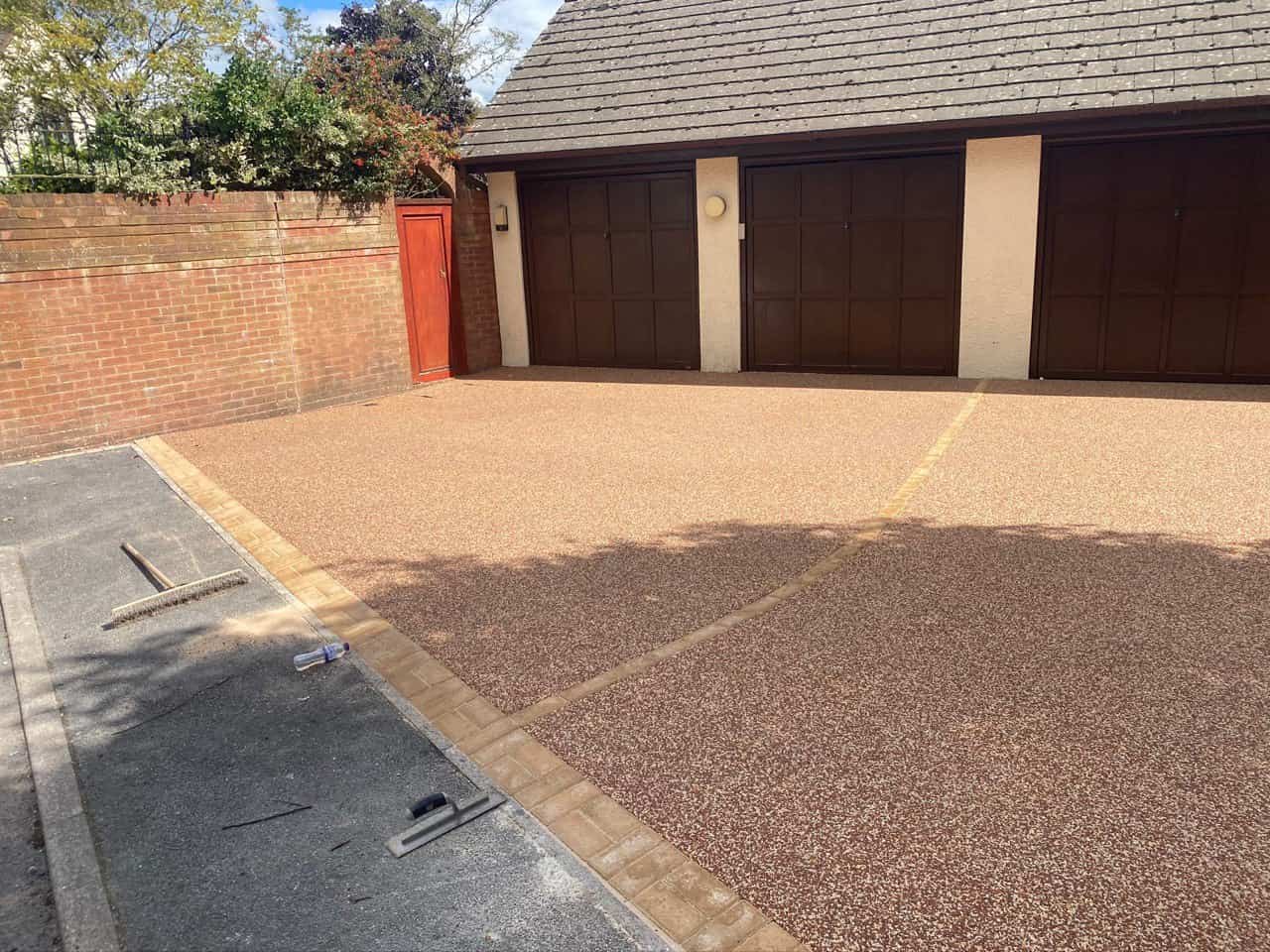Sealing Block Paving: When and Why
Block paving is a popular choice for driveways and patios across the UK, known for its durability, style, and versatility. However, to keep it looking its best and performing well over time, proper maintenance is essential — and sealing is one of the most effective ways to protect it. Sealing your block paving at the right time helps prevent long-term damage, enhances colour, and makes future upkeep much easier. For homeowners in Littleport, Cambridgeshire, Littleport Driveways provides expert guidance and sealing services to preserve the beauty and strength of your paved surfaces.
Understanding the Purpose of Sealing
Block paving is made up of individual bricks or pavers, typically laid over a compacted sub-base with jointing sand between them. While strong and weather-resistant, the surface remains porous — meaning it can absorb water, dirt, and other contaminants. Over time, this exposure can cause discolouration, weed growth, and surface wear.
Sealing adds a protective layer over the paving, reducing water absorption and helping to maintain the driveway’s appearance and structure. Done properly, it creates a semi-permeable barrier that still allows the surface to breathe while protecting it from external damage.
The Key Benefits of Sealing Block Paving
1. Protection from Weather and Moisture
The British climate can be tough on outdoor surfaces. Constant exposure to rain, frost, and sunlight can cause fading, staining, and gradual erosion. Sealing prevents water from soaking into the blocks, reducing the risk of frost damage, surface wear, and cracking. It also helps repel oil and fuel spills, which are common on driveways.
2. Prevents Weed Growth and Moss Build-Up
Weeds and moss can quickly take root in the joints between pavers, spoiling the clean appearance of your driveway. A good quality sealer hardens the jointing sand and closes microscopic gaps, making it much harder for weeds to establish and for moss to grow.
3. Enhances Colour and Aesthetic Appeal
Sealing can restore and enrich the original colour of block paving, giving it a fresh and vibrant look. UV-resistant sealers prevent fading from sunlight, ensuring that your driveway maintains its attractive appearance for years. Whether your blocks are traditional reds and browns or modern greys and charcoals, sealing helps preserve their natural tones.
4. Reduces Maintenance
Once sealed, your block paving becomes much easier to clean. The smooth, protective finish prevents dirt, algae, and grime from adhering to the surface, meaning a simple sweep or light pressure wash keeps it looking pristine. Sealing also helps prevent staining from leaves, bird droppings, or oil drips.
5. Extends the Lifespan of the Driveway
By shielding the surface from moisture and wear, sealing helps prolong the life of your driveway. It strengthens the jointing sand and minimises erosion, ensuring that the blocks stay firmly in place and the surface remains stable over time.
When Should You Seal Block Paving?
Timing is crucial when it comes to sealing. Applying sealer too soon after installation can trap moisture beneath the surface, while waiting too long can allow stains and damage to set in.
For Newly Installed Driveways
New block paving should be left to settle before sealing. This allows the jointing sand to bed in and any natural salts within the blocks to dissipate. As a general guide, it’s best to wait at least 8 to 12 weeks after installation, depending on weather conditions and moisture levels in the surface.
For Existing Driveways
If your block paving has been down for some time, it’s important to ensure it’s thoroughly cleaned before sealing. Any weeds, stains, or moss should be removed, and the surface allowed to dry completely. Sealing should only be done in dry conditions, ideally during spring or early summer, to achieve the best adhesion and finish.
Signs That It’s Time to Reseal
Even if your driveway was sealed in the past, the protective layer will gradually wear down over the years.
Indicators that resealing is needed include:
- Noticeable colour fading or dullness.
- Increased weed or moss growth between blocks.
- Staining from oil or water that no longer beads on the surface.
- Loose or eroded jointing sand.
Professional resealing restores the surface protection and brings the driveway back to its original high-quality appearance.
The Process of Professional Sealing
Sealing is more than just applying a coating — it requires preparation, precision, and the right materials. At Littleport Driveways, each step is carried out with care to ensure a durable and even finish.
Step 1: Thorough Cleaning
The surface is deep cleaned using professional-grade equipment to remove dirt, algae, and organic growth. This ensures that the sealer bonds properly to the paving.
Step 2: Drying Period
After cleaning, the surface must be allowed to dry completely. Even small amounts of moisture trapped beneath the sealer can cause clouding or peeling.
Step 3: Re-Sanding
Fresh kiln-dried jointing sand is brushed into the gaps between blocks to stabilise the surface before sealing.
Step 4: Application of Sealer
The sealer is applied evenly across the surface, either by spray or roller, depending on the product and finish desired. Some sealers require multiple coats for maximum protection.
Step 5: Curing
The sealed area is left to cure for at least 24 hours. During this time, it’s important to avoid foot or vehicle traffic to allow the sealer to harden fully.
Choosing the Right Type of Sealer
There are various types of sealers available, and the right one depends on your surface and desired finish.
The Most Common Options Include:
- Acrylic Sealers: Offer a clear or satin finish and are suitable for most domestic applications.
- Polyurethane Sealers: Provide superior strength and are ideal for high-traffic areas.
- Matt or Gloss Finishes: The choice between a natural or shiny appearance depends on your preference.
Littleport Driveways advises on the most appropriate sealer for your driveway, ensuring long-lasting protection that complements your paving’s style.
How Often Should Block Paving Be Sealed?
Generally, block paving should be resealed every three to five years, depending on usage and exposure to the elements. Areas with heavy vehicle traffic or constant sunlight may require more frequent treatment. Regular cleaning and inspection will help determine when resealing is due.
The Long-Term Value of Sealing
Sealing is not merely an aesthetic enhancement — it’s an investment in the longevity and performance of your driveway. With proper sealing and care, block paving maintains its structural integrity and attractive finish for many years, resisting weathering and everyday wear.
For homeowners in Littleport, Cambridgeshire, professional sealing by Littleport Driveways ensures your driveway continues to look beautiful and perform at its best.
Conclusion
Sealing block paving is one of the most effective ways to protect and preserve your driveway. It enhances appearance, reduces maintenance, prevents damage, and extends the lifespan of the surface. Knowing when and why to seal is key — whether it’s a newly installed surface or an older driveway that needs refreshing. For expert sealing, cleaning, and maintenance services in Littleport, Cambridgeshire, homeowners can rely on Littleport Driveways to deliver professional results that keep their paving protected and looking immaculate year after year.
Call us on: 01353 881 093
Click here to find out more about Littleport Driveways
Click here to complete our contact form and see how we can help with your driveway needs.

